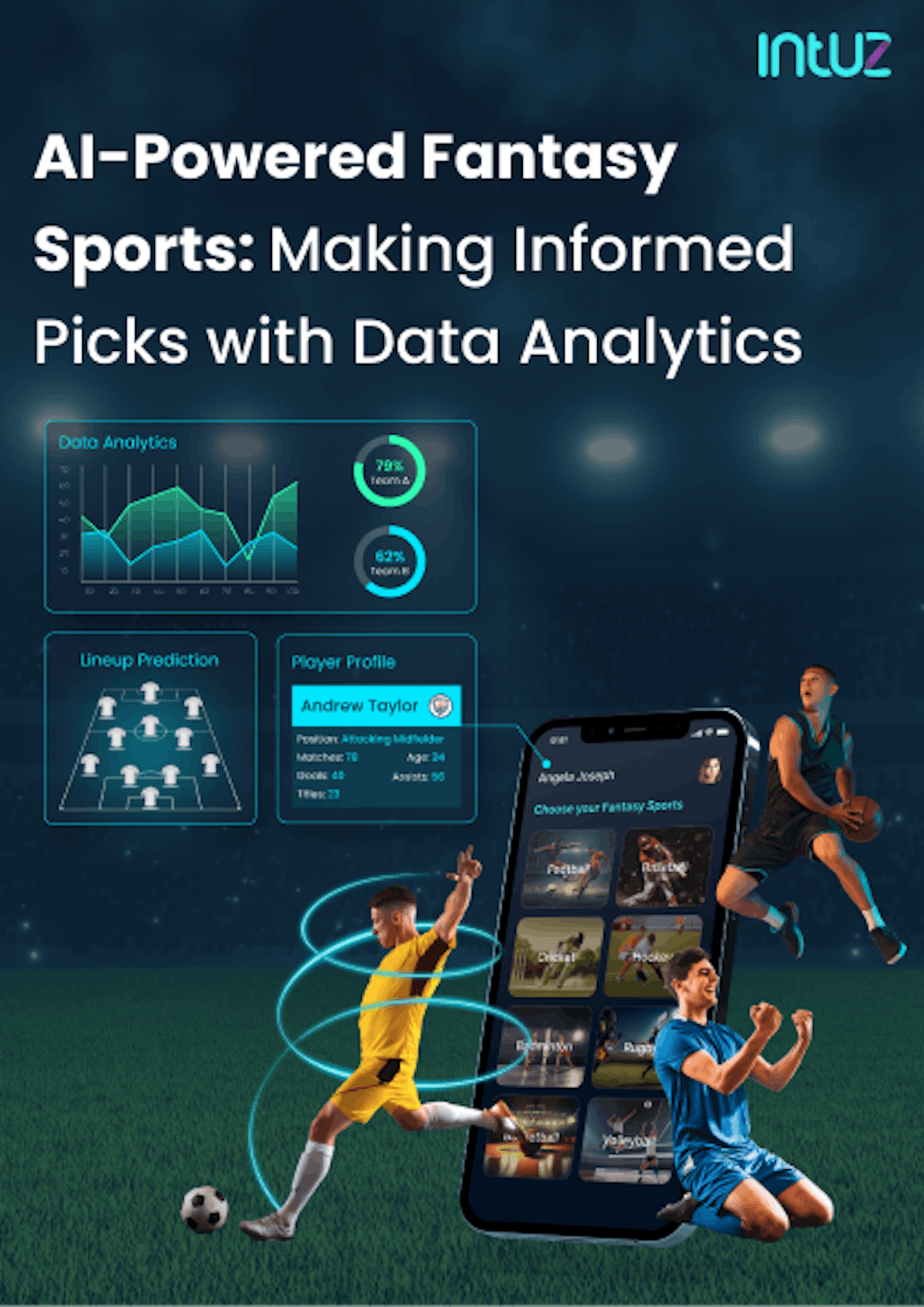Table of Content
The unwavering march of technology has led to several transformations in the retail industry. Retail businesses now work with a data-driven approach and offer personalized experiences online and offline.
The onslaught of innovations driven by artificial intelligence and related technologies is helping retail businesses be more efficient, adaptive, and resilient. The inclusion of AI in retail empowers these businesses to optimize their processes and know more about their customers and businesses.
AI-led automation improves inventory management, addresses customer concerns, and reshapes customer journeys, ultimately creating loyal customers and recurring sales. Let’s explore how AI in eCommerce and retail is helping increase sales and customer satisfaction.
Artificial Intelligence for Retail Sales
AI in retail has the power to transform in-store and online experiences. Until 2028, AI services in the retail sector are expected to increase beyond $31 billion.
From getting the right stock to offering personalized customer service, AI can completely reform the retail experience and drive more sales.
1. Supply Chain Forecasting
Often, retail businesses are burdened with supply chain mismanagement, which often leads to inventory issues, but AI and machine learning help capture demand drivers and improve inventory planning.
Retail businesses that are often troubled with empty shelves or overflowing stocks can streamline order management. As AI supercharges supply chain management, it improves inventory management, driven by algorithms and market analysis, trends, and weather patterns, retailers can ensure to have the right amount of inventory.
Zara leverages the power of AI to analyze sales data, predict future trends, and optimize production to reduce unsold inventory by 50%, there by optimizing their supply chain.
The accurate AI supply chain related forecasts give the confidence to negotiate with suppliers and allow retailers to practice dynamic pricing. Ultimately, retailers benefit from in-store and online availability because their inventory management is AI-driven, leading to optimized sales all year round.
2. Personalized Recommendations
The integration of AI in retail means no need for generic catalogs and convincing customers to try an outfit. Online and offline retailers can leverage the power of AI to give personalized recommendations. Fast-growing companies get 40% of their revenue from implementing personalization-led strategies.
As AI continuously observes the customer’s preferences from buying history and wish lists, it modifies the recommendations to align with their preferences. As a result, retail sales can increase and experience high order values.
Beauty product retailer Sephora is using AI to analyze customers’ skin tones, preferences, and features to recommend personalized makeup looks and products to hone that look.
Having received personalized recommendations, customer satisfaction increases because they see the products they like the most. With the brands using AI to give recommendations, their customers continue to trust them because the brands are exceeding expectations.
Ultimately retailers and eCommerce companies gain a competitive advantage because they are using AI to personalize customer experiences. From sales to support, everything is targeted to enhance customer loyalty.
3. Inventory Management Automation
Artificial intelligence can automate several tasks that humans can take more time and resources to complete. Automation with AI in retail, specific to inventory management, means businesses will spend less time completing the same tasks.
Smart inventory management does not only mean streamlining orders and sales. AI-based pricing and clearance solutions help retailers navigate through the markdowns and clearance processes.
Walmart has built an AI system named Eden for smart inventory management. It helps predict demands and forecast product sales with unbelievable accuracy, allowing supermarket giants to optimize inventory management.
Retailers benefit from automated product identification and allocation. It becomes easier for the staff to identify products for clearance and identify the best discounts to achieve the desired outcomes.
As a result, AI in retail is instrumental in reducing overstocking risks and spoilage. With optimized inventory management, retailers experience better margins and sales.
4. Customer Sentiment Analysis
eCommerce and retail is a customer-centric business. It would only make sense to use artificial intelligence in retail for customer sentiment analysis.
Gauging the customers’ sentiments and behavior only to understand them better and sell the products they like and in the manner they like is pivotal for business success.
Powerful AI algorithms decipher the emotions behind a customer’s comment, tweet, or review. They help determine the pain points and recommend ways to solve potential customer issues to reduce churn.
More importantly, it can help establish targeted customer engagement with personalized outreach strategies. Whether the communication strategy shall be driven by empathy, gratitude, etc. AI can build stronger relationships and increase brand loyalty.
5. Cost Reduction
A retail business can bring down costs on multiple fronts with the help of artificial intelligence. As AI finds its way into retail business operations, it starts optimizing tasks and improving outcomes.
Whether it is about managing inventory, building marketing campaigns, addressing customer issues, or administrative tasks, AI can bring efficiency into all processes.
Better efficiency and productivity have several potential outcomes, including cost reduction. AI-driven capabilities like predictive maintenance and data drive decision-making to minimize downtime and improve resource allocation, respectively.
With AI, eCommerce and retail businesses can minimize waste and explore multiple cost-saving measures to achieve better results.
With artificial intelligence, retailers can enter a new paradigm of efficiency, productivity, and profitability. It helps personalize customer experiences and satisfy their requirements to the best extent possible.
Artificial Intelligence for Customer Loyalty
Customer loyalty is one of the most revered and hard-to-get attributes in the retail business. But did you know how AI can help increase customer loyalty?
Businesses are ready to spend significant amounts of money to acquire more loyal customers. These customers bring recurring sales, and they eventually become brand advocates and ambassadors.
1. Personalization For Higher Engagement
Over 70% of customers expect to receive personalized recommendations and product offers. In addition to personalization, customers look for consistent experiences from their brands.
At the bottom of the higher engagement levels is a brand’s ability to understand its customers and deliver bespoke solutions. Hence, online and offline retailers need to explore AI capabilities for personalization.
For instance, retailers can leverage augmented reality and virtual reality technologies to improve in-store shopping experiences. Lowe uses the power of AR and VR to let their customers visualize how a piece of furniture would look in the room before buying.
AI algorithms learn and record customer preferences and suggest similar items based on preferences for better customer experience and interest. Consistently showing customers that you care about their experiences increases loyalty in the long run.
2. Predictive Analytics for Customer Experience Improvement
Imagine if you could predict your customers’ needs before they can express them. AI predictive analytics gives businesses a superpower to elevate customer experiences.
This comes with a unique capability of analyzing past purchases, browsing behavior, and industry trends to anticipate an individual’s needs. As a result, the customers are set to receive personalized recommendations and proactive support.
Moreover, predictive analytics can also be used to set dynamic pricing based on real-time demand, maximizing value for customers and businesses. As a result, the customers feel heard, valued, and understood, leading to increased loyalty and trust.
3. Chatbots To Enhance Customers Interactions
Chatbots that leverage generative AI capabilities can easily answer more than 80% of the routine questions for businesses. With generative AI in retail and eCommerce, businesses can provide better customer service and stay available for their customers 24/7 without losing the human touch.
Moreover, these chatbots are another way to personalize user experiences. They can understand and respond to complex queries, provide product recommendations, and lead customers to the right page.
Well-executed chatbots can improve overall customer experience and improve customer turnaround time while reducing operational costs. Chatbots are also a source of data collection, which retail businesses can harness to provide personalized recommendations and increase customer satisfaction.
4. Customer-Centric Product Innovation
Artificial intelligence helps businesses understand customer purchase behavior and their interaction patterns. It's about time retail businesses start using this information to design better products suited to their customers’ needs.
Tommy Hilfiger uses the power of AI to understand buyer trends and learn how customers view their products. Using this information their project Reimagine Retail has led to designing and showcasing products in a way the customers like to experience, thereby increasing sales and interactions.
In this, a subset of AI-empowered technologies like natural language processing, computer vision, and deep learning are utilized to analyze databases and gather useful information.
Using this data, retail brands can generate customer personas with unique personality traits. As AI paints clear portraits of the customers, it becomes easier for retail businesses to sell products to their customers
5. Interpreting Customer Behavior Through Data Analysis
AI in retail is instrumental in analyzing customer behavior and creating guidelines to deliver the best customer experiences. Using the information gained from here leads to optimized purchasing processes where businesses can customize customer journeys to ensure conversions.
AI makes retail businesses agile and resilient as it allows them to adapt quickly to changing consumer behavior. As it regularly extracts and collects data, the AI algorithms analyze it to make lightning-fast decisions and stay competitive.
Artificial intelligence is an enabling technology. Building a loyal customer base requires businesses to be intelligent, adaptive, and empathic enough to understand their customers and evolve with their preferences.
Future of Retail in the AI Era
We have seen some exciting trends and technologies being launched in the retail industry with the help of AI. As we progress into the future, it’s natural to see better and more effective utilization of AI technology to enhance customer experiences and increase sales, and loyalty.
1. Hyper-Personalized Product Recommendations
Hyper-personalized retail stores will showcase products according to the customer’s preferences and style. The products will start to appear on digital shelves as customers walk into the store.
AI-enabled stores will analyze an individual’s mood, social media activity, and personal preferences to curate a unique shopping experience.
2. Emotionally Intelligent AI Systems
AI technology is still considered subpar as compared to human emotional awareness. Emotion-aware AI chatbots and guiding systems can empathize with the customers.
These systems will use sentiment analysis and natural language processing to identify frustration, confusion, excitement, etc., to adjust their responses accordingly.
3. Immersive Try-On Experiences
Immersive try-on experiences allow your customers to try every piece of clothing virtually through digital screens. These are not limited to clothes but to accessories and furniture as well.
Augmented reality and 3D scanning technology can project virtual items onto the surface or customer’s image. This gives them a visualization of how the item will look when they are wearing it or in the room.
Capture A Larger Audience With Our eCommerce Development Services
Explore nowConclusion
Integrating AI in retail and eCommerce will help retailers improve customer experiences and reduce operational costs. As AI can impact multiple areas of a business, careful planning and implementation are crucial to harness its benefits.
With our experience in AI app development, Intuz can help you build AI-enabled retail app solutions aimed at increasing retail sales and improving customer loyalty. We can embed AI-based technologies and solutions into your business and help you gain a competitive advantage.
Discover the potential of AI to improve your retail business sales, profits, and customer loyalty with Intuz’s intelligence and experience. Get in Touch.






